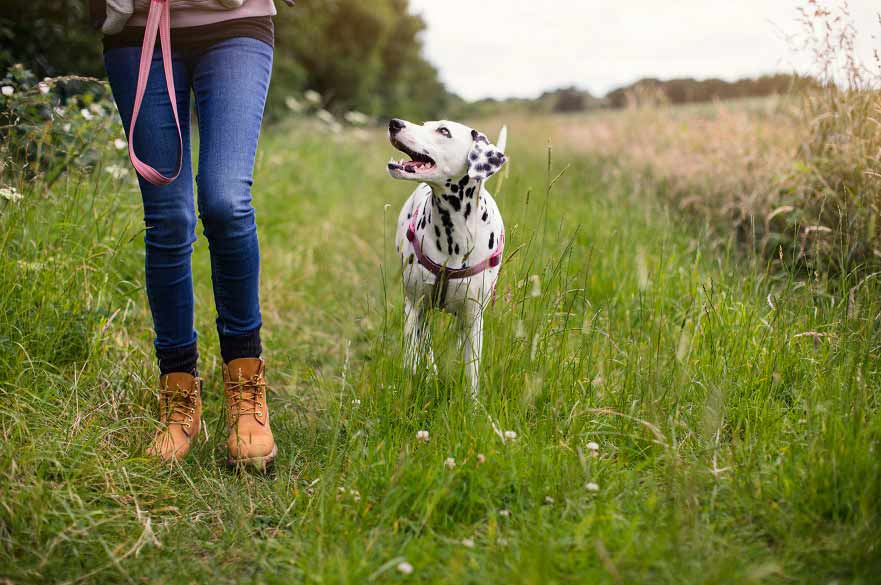Study investigating how different seasons affect dog activity levels
Researchers are investigating how the weather affects the amount of exercise dog owners give their pets.
By Dave Rogers | Published on 5 June 2018
Categories: Press office; Research; School of Animal, Rural and Environmental Sciences;

A team at Nottingham Trent University wants to better understand how the seasons – particularly very hot and very cold weather – impacts upon how often a dog gets exercised.
The research also aims to shed light on whether any breeds of dog are more sensitive to extreme weather conditions.
It is part of a wider study led by the university’s School of Animal, Rural and Environmental Sciences, which is looking at how factors including breed, age, gender, health and the time of year affects the activity levels of different dogs.
Dog owners are being invited to complete a short survey as part of the study.
It is hoped the results may be useful in helping veterinary surgeons and nurses identify conditions that can impact the activity levels of dogs and therefore potentially increase the dog's risk of developing obesity.
It could also help new dog owners to identify breeds that suit their own lifestyle.
“We don’t really know how much exercise – or what type of exercise – the average pet dog currently gets,” said Emily Hall, a lecturer in veterinary nursing at Nottingham Trent University.
“This work may help us to understand which factors impact a dog’s level of exercise and therefore identify dogs at risk of diseases associated with a sedentary lifestyle.”
Notes for Editors
Press enquiries please contact Dave Rogers, Public Relations Manager, on telephone +44 (0)115 848 8782, or via email; or Helen Breese, Public Relations Manager, on telephone +44 (0)115 848 8751, or via email.
- Nottingham Trent University was named University of the Year 2017 at the Times Higher Education Awards and Modern University of the Year in the Times and Sunday Times Good University Guide 2018. The award recognises NTU for its strong student satisfaction, quality of teaching, overall student experience and engagement with employers.
- Nottingham Trent University (NTU) has been awarded the highest, gold, rating in the Government’s Teaching Excellence Framework for its outstanding teaching and learning.
- NTU is one of the largest UK universities with nearly 28,000 students and more than 3,500 staff across four campuses, contributing £496m to the UK economy every year. It is one of the most environmentally-friendly universities, containing some of the country’s most inspiring and efficient award-winning buildings.
- The University is passionate about creating opportunities and its extensive outreach programme is designed to enable Nottingham Trent to be a vehicle for social mobility. NTU is the sixth biggest recruiter of students from disadvantaged backgrounds in the country and 95.6% of its graduates go on to employment or further education within six months of leaving.
- NTU is home to world-class research, winning The Queen’s Anniversary Prize in 2015 - the highest national honour for a UK university. It recognised the University’s pioneering projects to improve weapons and explosives detection in luggage, enable safer production of powdered infant formula and combat food fraud.
- With an international student population of approximately 2,600 from around 100 countries, the University prides itself on its global outlook.